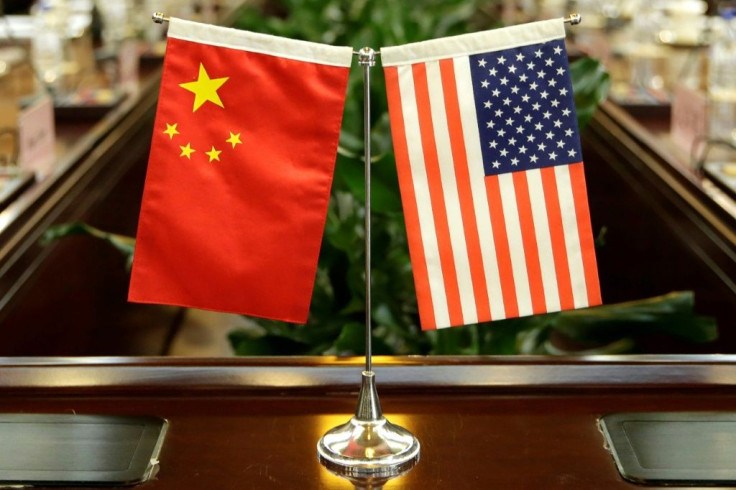States Warn Against Planting Mystery Unsolicited Seeds 'From China,' USDA Says Could Be 'Brushing Scam'

Residents in at least 28 U.S. states have reported about receiving unsolicited packets of seeds of unknown plants and state agricultural departments issued warnings against planting them. At least one agriculture department warned the mystery seeds could be of invasive species that could introduce new diseases to local plants and even be harmful to livestock.
The packages were suspected to have originated in China because some people in Washington received seeds in white packages with shipment details drafted in Chinese, all of which carried the English words "China Post." It is believed that the seeds are arriving from both China and Uzbekistan, the New York Times reported.
The mystery mail packages come against the backdrop of rising tensions between the U.S. and China over issues ranging from the origin of the coronavirus pandemic and Beijing's alleged attempts to restrict information on its initial spread to trade and cyber espionage to Beijing's expansive maritime claims in the South China Sea.
The U.S. Department of Agriculture said in a statement Tuesday, July 28, that they don’t yet have any evidence that the shipments were part of anything other than a "brushing scam" where people "receive unsolicited items from a seller who then posts false customer reviews to boost sales." The USDA is currently collecting packages from recipients to conduct tests which will determine whether they could be of concern to U.S. agriculture or the environment.
"USDA urges anyone who receives an unsolicited package of seeds to immediately contact their state plant regulatory official or APHIS State plant health director. Please hold onto the seeds and packaging, including the mailing label, until someone from your state department of agriculture or APHIS contacts you with further instructions. Do not plant seeds from unknown origins," the statement read.
The USDA’s Animal and Plant Health Inspection Service is working jointly with U.S. Customs and Border Protection and state departments of agriculture to investigate, while agricultural departments in Alabama, Colorado, Iowa, Kansas, Kentucky, Louisiana, Maryland, Minnesota, Mississippi, Montana, Nebraska, Nevada, New Hampshire, New Jersey, North Carolina, North Dakota, Oklahoma, South Carolina, Tennessee, Texas, Virginia, Washington State, West Virginia, and Wyoming have requested people to turn any suspicious packages over to officials for inspection. Thousands of Americans have received these packages until now.
If you receive seeds in the mail that you did not order, do not plant them. We are working with @USDA_APHIS to determine what should be done with these seeds. Double bag and hang onto them until we know more. And report to https://t.co/mcPSHYvqiA pic.twitter.com/okd8rZ11BB
— TN Dept. of Ag (@TNAgriculture) July 27, 2020
Chinese foreign ministry spokesman Wang Wenbin said in a daily news briefing Tuesday that the packages appear to be fraudulent as China’s postal service doesn’t hold any official records on them. The agency has asked for the packages to be sent to China for investigation, according to Reuters.
Some people in Ohio reported receiving similar packages in yellow envelopes displaying the words "China Post" and Chinese letterings, with the Delaware Department of Agriculture saying some of those received in the state came either alone or with "jewelry, or another inexpensive item."
A tweet from a Delaware recipient shows a packet labeled as "tulip stud earrings," carrying other shipment details in English.
“I thought something might have been up when I saw this”
— George Solis (@GeorgeSolis) July 28, 2020
Jason from North Coventry Township, Pennsylvania decided to document for Action News his strange delivery from overseas.@6abc pic.twitter.com/UWepiaTGL4
Mississippi Agriculture and Commerce Commissioner Andy Gipson urged residents not to toss the seeds in trash. "If you receive seeds from China, DO NOT PLANT THEM. And don’t throw them in the trash," he wrote on Facebook.
See posts, photos and more on Facebook.
The Montana Department of Agriculture said in a statement Monday that they were working with USDA’s Animal and Plant Health Inspection Service to "safely identify and dispose of the mailed materials."
The department said that the seeds could be invasive, "meaning they may have the potential to introduce diseases to local plants or could be harmful to livestock."
Steve Cole, director of Clemson University's Regulatory Services unit in South Carolina, said if thrown away, the seeds can end up sprouting from a landfill.
Officials from the USDA will reportedly work with the Department of Homeland Security and local officials to restrict the influx of the illegal seeds in the U.S.
© Copyright IBTimes 2025. All rights reserved.






















